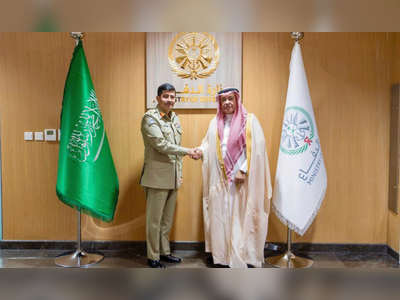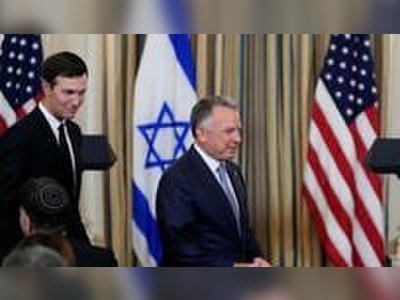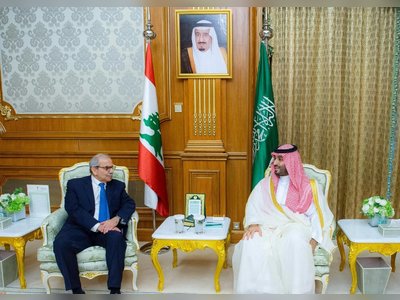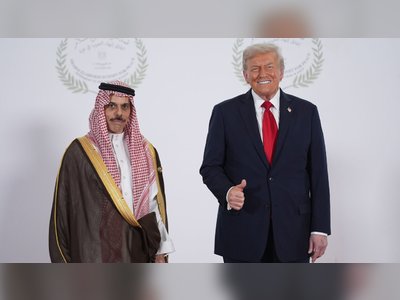
Pentagon Intelligence Flags F-35 Sale to Saudi Arabia Over China Leak Risk
A classified report warns that approving the F-35 transfer could expose sensitive technology through Saudi-Chinese ties
A classified intelligence assessment compiled by the Defense Intelligence Agency has been cited by U.S. officials as warning that a proposed sale of up to 48 F‑35 Lightning II stealth fighters to Saudi Arabia may pose a risk of advanced technology leakage to China.
The report, which remains unpublished, is said to have prompted heightened scrutiny in Washington of Saudi Arabia’s defence procurement and industrial relationships.
The deal under review, coming amid talks between President Donald Trump and Saudi Crown Prince Mohammed bin Salman, would mark a historic shift in Gulf air-power arrangements.
Saudi officials are seeking to modernise their air force with the fifth-generation F-35, seen by Riyadh as a critical element of its military strategy and aligned with its Vision 2030 transformation agenda.
In recent weeks, the U.S. Department of Defence cleared a key internal approval that advances the sale to the policy level, though final presidential, Cabinet and Congressional consent remain pending.
Simultaneously, the intelligence caution originates from concerns about Saudi defence ties with China, including drone and ballistic-missile cooperation, and the possibility that F-35 software, sensor or sustainment data could be compromised.
Israeli officials have raised objections to the sale on the grounds of preserving Israel’s qualitative military edge (QME).
Israel remains the sole Middle Eastern operator of the F-35 and holds a fleet of bespoke variants known as the F-35I “Adir.” Its defence leaders contend that allowing Riyadh access could erode Tel Aviv’s regional superiority and unsettle alliances.
The U.S. intelligence warning amplifies Capitol Hill’s caution: human-rights concerns and previous Saudi actions—such as the Istanbul operation linked to the Saudi Crown Prince—have already made Congressional approval uncertain.
Should Washington decline the sale, Saudi Arabia could pivot toward Chinese or Russian stealth-fighter alternatives, signalling a further geopolitical shift in Middle East defence markets.
For its part, Riyadh has emphasised its deep historic partnership with the United States and framed the F-35 acquisition as essential for safeguarding its national security interests, particularly in the face of threats from Iran and asymmetric conflict in Yemen.
The negotiation remains fluid, with both sides weighing technology safeguards, industrial offsets and regional security commitments as they approach a decision point in the coming weeks.
The report, which remains unpublished, is said to have prompted heightened scrutiny in Washington of Saudi Arabia’s defence procurement and industrial relationships.
The deal under review, coming amid talks between President Donald Trump and Saudi Crown Prince Mohammed bin Salman, would mark a historic shift in Gulf air-power arrangements.
Saudi officials are seeking to modernise their air force with the fifth-generation F-35, seen by Riyadh as a critical element of its military strategy and aligned with its Vision 2030 transformation agenda.
In recent weeks, the U.S. Department of Defence cleared a key internal approval that advances the sale to the policy level, though final presidential, Cabinet and Congressional consent remain pending.
Simultaneously, the intelligence caution originates from concerns about Saudi defence ties with China, including drone and ballistic-missile cooperation, and the possibility that F-35 software, sensor or sustainment data could be compromised.
Israeli officials have raised objections to the sale on the grounds of preserving Israel’s qualitative military edge (QME).
Israel remains the sole Middle Eastern operator of the F-35 and holds a fleet of bespoke variants known as the F-35I “Adir.” Its defence leaders contend that allowing Riyadh access could erode Tel Aviv’s regional superiority and unsettle alliances.
The U.S. intelligence warning amplifies Capitol Hill’s caution: human-rights concerns and previous Saudi actions—such as the Istanbul operation linked to the Saudi Crown Prince—have already made Congressional approval uncertain.
Should Washington decline the sale, Saudi Arabia could pivot toward Chinese or Russian stealth-fighter alternatives, signalling a further geopolitical shift in Middle East defence markets.
For its part, Riyadh has emphasised its deep historic partnership with the United States and framed the F-35 acquisition as essential for safeguarding its national security interests, particularly in the face of threats from Iran and asymmetric conflict in Yemen.
The negotiation remains fluid, with both sides weighing technology safeguards, industrial offsets and regional security commitments as they approach a decision point in the coming weeks.










